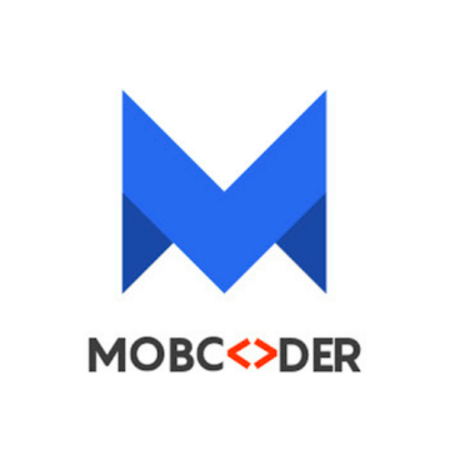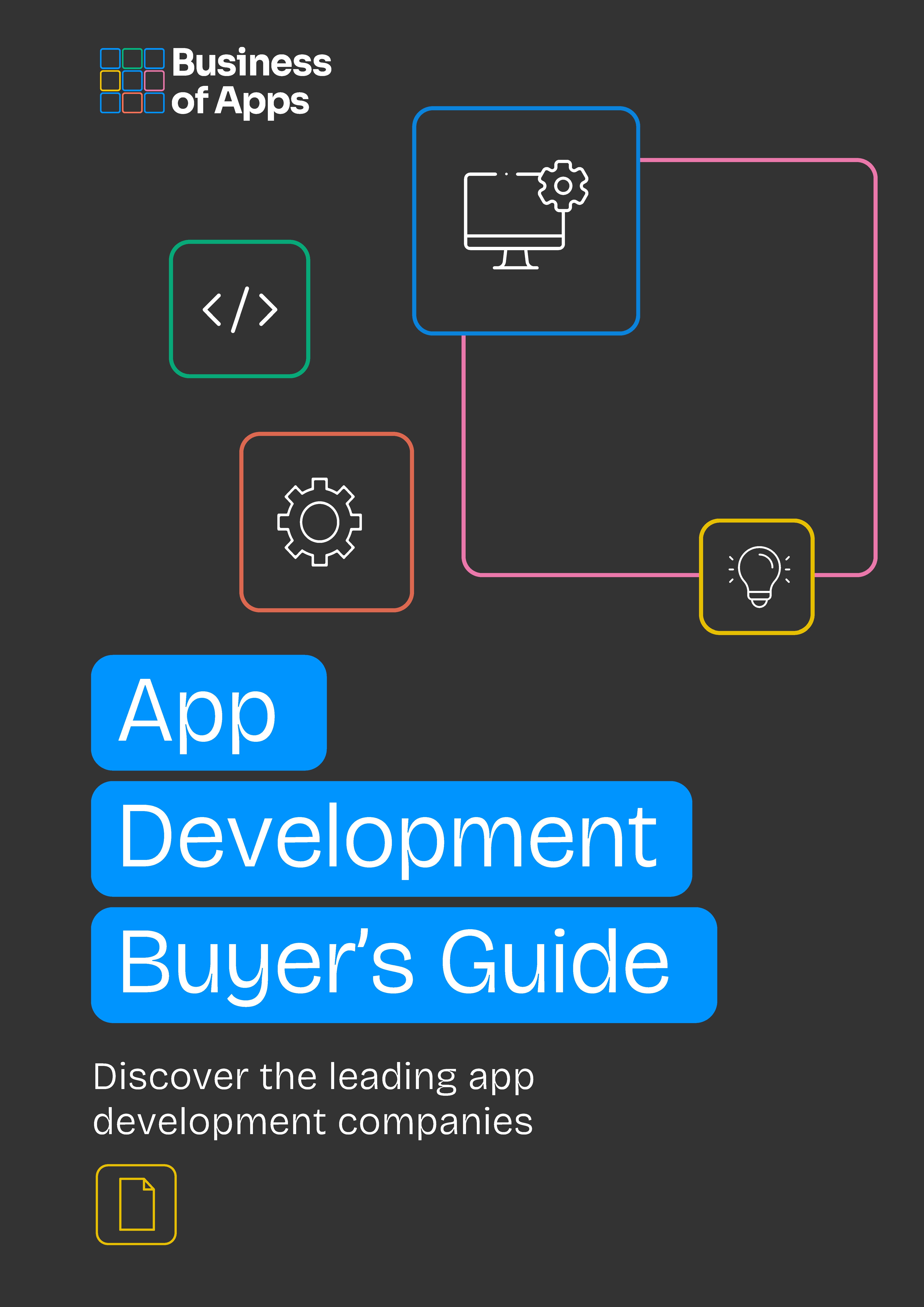This guide will cover the best mobile web app development services, how much it costs, top app development features, and how you stand to benefit from using mobile web app development companies.
Mobile web apps are generally faster and cheaper to make than native mobile apps, especially when your aim is to support a large range of devices.
Essentially, mobile web apps are mobile-optimized web pages that look like apps.
There are a number of top mobile web app developers available for you to hire out there. In our directory, we’ve listed the best of them, allowing you to choose the right one for the job.
This guide will cover everything you need to know about mobile web app development.
What is a mobile web app?
Mobile web apps are internet-enabled apps that have specific functionality for mobile devices. They’re typically accessed through your mobile device’s web browser.
These apps have a single code base across all platforms, and users don’t have to go to an app marketplace, download the app and then install it.
If you have an existing web app, you can modify it with a new web design with comparative ease.
App Development Buyer's Guide
Download our App Development Buyer’s Guide to get a full list of the best service providers on the market to choose from. You will also learn about types of app developers, different app development platforms, app developer locations, app development costs, how to select the right one for your business, as well as the questions to ask any of those companies you will be evaluating.
For many people, budget and resource constraints will require them to choose whether to build a native or a mobile web app, so think about which is best suited to you.
The best mobile web app developers
We’ve listed the best mobile web app developers below.
1. Orangesoft

Orangesoft is a mobile app and web development company that creates custom software solutions for businesses. The company serves various industries, including healthcare, helping clients build high-quality digital products.
Orangesoft worked on the Web 3.0 crypto wallet project. This solution was developed for iOS, Android, and the web, allowing users to manage digital assets seamlessly across devices. The web version of the app was designed to deliver a mobile-optimized experience, enabling users to access their wallets, check balances, and make transactions directly from a browser without installing a native app.
The mobile web app also incorporated modern security practices, such as biometric authentication and encryption, to protect sensitive financial data. It included real-time updates, transaction history, and integration with blockchain networks—all accessible via the browser.
Overview
Orangesoft was founded in 2011 by Dmitry Zolotukhin and Alexander Vinogradov. They established the company to provide custom software solutions, focusing on healthcare mobile app development as well as web development.
Orangesoft has worked with several key clients, including Yandex, Kaspersky Lab, Revolut, and OZON.
Services
Orangesoft provides its customers with the following services:
- Using frameworks like React Native and Flutter to develop apps that work on both iOS and Android
- Real-time syncing and account linking for mobile web apps
- Building robust back-end systems with Node.js, Python, Ruby on Rails, and other server-side tech
2. Designli

Designli is a software development firm that offers a comprehensive range of services, including UX/UI design, healthcare mobile app development, web app and cross-platform development. Their approach focuses on delivering high-quality, user-friendly solutions tailored to meet the specific needs of their clients.
Switchboard is a web-based communication and care coordination platform designed specifically for addiction recovery centers. Built with HIPAA compliance in mind, the platform enables care teams to securely message patients, monitor progress, and coordinate treatment plans—all through a browser-based interface.
The app also includes custom dashboards for administrators, providing metrics on engagement, outcomes, and team performance. Designli worked closely with the client to translate complex workflows into an intuitive interface that required minimal training.
Overview
Designli was founded in 2013 by Joshua Tucker and Keith Shields. The company is based in Greenville, South Carolina, and focuses on providing design and development services, particularly for custom healthcare mobile and web apps.
Services
Designli provides its customers with the following services:
- Offers professional design services to craft intuitive and visually appealing user interfaces for mobile web apps
- Helps clients define their product goals, target users, and market strategies
- Builds apps that work across multiple platforms, ensuring broad accessibility and functionality
3. Trango Tech

Trango Tech is a tech services and app development company aimed at helping businesses enhance their digital presence, streamline operations, and innovate their product offerings.
The Bridge is a web-based platform designed to connect music enthusiasts with talented artists, aiming to digitize and revolutionize the music industry. Developed by Trango Tech, the app offers an engaging interface that bridges the gap between artists seeking exposure and fans looking for new music experiences.
The platform’s user-friendly design ensures seamless navigation, allowing users to explore various music genres, follow their favorite artists, and participate in community discussions. Trango Tech’s expertise in web app development is evident in The Bridge’s layout and intuitive features.
Overview
Trango Tech was founded in 2017. The company was established to provide innovative tech solutions, particularly in mobile app development, web development, and IT consulting.
Since its founding, Trango Tech has worked with clients across various industries to help them build custom software solutions that meet their business needs.
Services
Trango Tech provides its customers with the following services:
- Develops mobile web apps that enhance enterprise-level systems and helps with automation, integration, and the management of data
- Provides customized platforms to help businesses sell products online
- Offers solutions for data storage, scalability, and infrastructure
4. Mobcoder Inc

Mobcoder Inc is a tech company that specializes in mobile app development and custom software solutions. Mobcoder typically offers services such as app design, development, testing, and deployment. The platform aims to streamline the process of finding and working with developers by providing a marketplace for various app development needs.
Zeppelin, developed by Mobcoder, is a web-based business intelligence platform that leverages artificial intelligence to transform video surveillance data into actionable insights. Designed for businesses of all sizes, Zeppelin captures footage from security cameras and processes it to generate visual dashboards.
The platform is cloud-native and mobile-first, ensuring accessibility across devices and locations. With features such as edge AI processing, Zeppelin offers rapid data analysis with minimal bandwidth consumption. Its collaborative tools allow team members to share insights, comment on findings (and stay aligned on operational strategies).
Overview
Founded in 2011, the company focuses on delivering high-quality mobile and web apps, providing end-to-end development services, and helping businesses achieve their digital transformation goals.
Their clients typically span a range of industries, including healthcare, finance, and retail.
Services
Mobcoder Inc provides its customers with the following services:
- Designs intuitive and user-friendly experiences for mobile and web apps
- Offers continuous support and updates to keep apps running smoothly and efficiently
- Creating native apps for iPhone and iPad using Swift and Objective-C
5. Light IT Global

Light IT Global is an app development company that delivers innovative web and mobile solutions for startups and enterprises. With over 18 years of experience, they have completed over 500 custom projects.
Light IT developed a multifunctional web app designed to help prevent cardiovascular diseases by empowering users to monitor and manage their health. The platform enables individuals to log key health metrics such as blood pressure and receive personalized recommendations based on real-time data.
The app also features a backend portal for healthcare professionals, allowing them to track patient data, flag health risks, and provide remote consultations.
Overview
Light IT Global was founded in 2006 in Ukraine. The company began as a small team of three individuals engaged in reconstructing local historic landmarks. Over time, it transitioned into a software engineering firm, expanding its services to include web and mobile development.
Light IT Global employs over 100 professionals and has completed over 500 custom client projects worldwide.
Services
Light IT Global provides its customers with the following services:
- Designing and building mobile web apps
- Developing robust, secure, and scalable platforms that integrate with payment gateways
- Crafts visually appealing designs that enhance the user experience and boost engagement
6. 3 Sided Cube

3 Sided Cube is an app developer specializing in creating impactful and innovative mobile apps.
3 Sided Cube developed a web-based ‘Bother’ platform, designed to change how people shop for household essentials. Instead of using traditional subscriptions, Bother learns users’ shopping habits and predicts when to restock items like cleaning supplies or pantry staples.
To make it all work, the team at 3 Sided Cube built a custom front end and connected it to a smart backend system that powers real-time personalization. At the core is the ‘Bother Brain’, an AI engine that tracks individual usage patterns and recommends what to order next. The result is a fast, intuitive web app that makes shopping more efficient and environmentally friendly.
Overview
3 Sided Cube was founded in 2009. The company has focused on using tech to create products that drive social impact and innovation, helping organizations and causes achieve their goals.
They are known for their work on projects that aim to drive social change. For example, they developed the American Red Cross Blood Donor app and the Disaster Preparedness app, which have been instrumental in saving lives and providing critical support during emergencies.
Services
3 Sided Cube provides its customers with the following services:
- Researches to understand user needs, the competitive landscape, and industry trends to inform a web app’s development
- Early-stage design processes that help visualize the app’s functionality and flow
- They work with clients to define the web app’s purpose, target audience, and key features
7. KodersPedia

KodersPedia is a digital product studio that builds custom web and mobile apps for startups, enterprises, and everything in between. Blending strategy, design, and development, their team works across industries to create scalable, user-centric platforms.
One example of their work is ‘PulseBoard’, a web-based dashboard apps designed for small healthcare clinics. PulseBoard helps clinic administrators monitor appointments, track patient flow, and generate real-time reports on staffing, wait times, and service metrics.
Built using React and Node.js, the platform supports multiple user roles and integrates seamlessly with existing electronic health record systems. KodersPedia designed the interface to be responsive and clean, ensuring staff could easily access it from desktops or tablets throughout the workday.
Overview
KodersPedia is a software development company founded in 2020 by Shaloni Modi. Headquartered in Palo Alto, California, the company has grown into a mid-sized team of developers, designers, and product strategists.
With expertise in custom web and mobile development, blockchain, and emerging technologies, KodersPedia brings a modern, agile approach to product delivery. The team focuses on creating scalable platforms with intuitive user experiences.
Services
KodersPedia provides its customers with the following services:
- Specializes in building responsive web apps that work seamlessly across devices, from mobile phones to desktops
- Their team uses up-to-date frameworks like React, Node.js, and Flutter to ensure performance, scalability, and smooth user experiences
- Every project is built with clean, intuitive interfaces that prioritize usability on small screens and touch interactions
Types of mobile web apps
The three main types of mobile web apps are:
- Standard web mobile apps
- Progressive web apps (PWAs)
- Hybrid web apps
Examples of progressive mobile web apps include the following:
- Spotify
- Gmail
- Trello
- Google Maps
Mobile web app developer example

Source: Appnovation
You can view, read and efficiently use the above apps on your mobile device, demonstrating how these apps transform sites and businesses.
PWAs provide automatic updates and act like native apps on a mobile device–they run well and, similar to native apps, can be installed without trouble.
The beauty is that these apps work well even when rich or continually changing content is the norm. Think carefully about your business and the type of mobile web app that would work best.
Why should I develop a mobile web app?
One of the biggest reasons for those on a tight budget will be that these apps are cost-effective, not to mention easy to develop and fast to deploy.
Mobile web apps are accessible on desktop and mobile devices, and update automatically, which is popular with mobile users.
While it’s true that native apps remain the gold standard for companies that want to deliver a premium experience, companies that want to prioritize faster, easier, and more cost-effective apps will want to develop a mobile web app instead.
A mobile web app is used via a web browser, usually Chrome, Firefox, or Safari, and can be accessed with the help of a shortcut or a bookmark (or by simply typing in the URL).
This is different to native apps that are downloaded via app stores–in other words, there’s a ready convenience to mobile web apps that some users will prefer.
Mobile web apps focus on a higher level of interactivity and functionality with condensed content, too, so for some businesses, it’s a natural move to make.
Mobile web app developer example
 Source: SolveIt
Source: SolveIt
One of the biggest benefits of mobile web apps is that users of any mobile device (or even future devices that don’t exist) can access the app and use it immediately.
Typically only one person is required to maintain a single code base, and you are not bound by the terms and conditions of competing app stores.
With mobile web apps, you don’t need to worry about users if they don’t update to the latest version of your software either.
What is the mobile web app development process?
You need to develop the best mobile web app possible. One that loads quickly, runs smoothly and offers a great all-around service.
Building a web app is about following a specific process that ensures nothing, on a critical level, gets missed during development.
You can find a streamlined step-by-step guide to the app development process below.
1. Identify the niche
The first step to developing a mobile web app is to select a suitable niche. You need to think about things like the type of app you wish to build, what it does, and which area you want to focus on overall.
2. Ensure legal compliance
You need to be sure you’re aware of what you’re legally allowed to do while developing an app.
Most countries have a set of legal requirements that you must comply with, and each will typically follow different safeguarding systems.
3. Competitor analysis
You’ll need to analyze your competitors. Most niches are highly competitive due to the potential audience you can reach and the value you can offer.
It’s important to analyze your competitors, find out the advantages you have against them, and see how long it took them to become successful.
Doing so will put you in a much better position to be able to list the features of your app and set out the unique value you provide.
4. Define your must-have features
Now you need to choose the must-have features for your mobile web app.
You don’t need to cram your app with endless features, but you must create a robust solution with features that’ll make your mobile app more innovative and user-friendly.
Shortlist all those features you can’t imagine the app would function without, as this will provide a plan to move ahead.
5. Build the right team
An experienced team of experts will allow you to create a unique app. Most brands alone won’t have the experience to develop an app without support.
Therefore, be sure to hire a team of developers or work with a reputable app development company with the relevant expertise. You need to be able to build a competent app without stress along the way.
6. Estimate the cost
You need to consider many factors for determining the cost of your solution, from the app’s features to legal compliances.
It’s best to estimate before starting the app development process–you can do this by preparing your project’s scope document with a budget and timelines.
Mobile web app developer example
 Source: PixelBeard
Source: PixelBeard
7. Create an MVP
An MVP (minimum viable product) is the version of your app that serves as proof of your app’s concept and includes the minimum amount of features to be able to try it–it’s typically the most basic version of the app you’ll see. This is even easier to achieve with mobile web apps.
This enables you to get early feedback on the app and minimises the risk of your idea going wrong. You’ll also be able to increase your app’s scope of improvement and reduce overall risk factors.
8. Upgrading and improving
Your app development process shouldn’t stop after the mobile web app gets launched. Instead, keep improving and upgrading it as the feedback comes in–the process is a gradual one rather than instant.
The improvement of processes and products should be made by adopting new technologies and providing quick responses to customers’ problems–this ensures the app goes from success to success.
Mobile web app development guide
Mobile web apps are driving revenue and are a key part of mobile app development, so you’ll need the best app developers for the job. You can find our app developer guide here.
Keep in mind: Around 38% of mobile web visitors will stop visiting your site if the content is not engaging enough for them.
Mobile web app development best practices and features
Here are some of the main aspects to consider when developing a mobile web app, including best practices as well as essential and advanced features.
Prioritize security
Your mobile web app may handle a lot of data, including sensitive customer information.
When it comes to security, your reputation is at stake since exposing customer data might lead to serious consequences. Decide how you will protect your company’s and users’ data from malicious attacks.
Think about how you will use the generated data
The data is safe and secure, but what are you going to do with it? How will you leverage large amounts of information to better enhance your business?
For example, you can use the collected data to gain insights into the market, establish behavioural patterns, engage with the audience and even promote new products. Think carefully about this.
Mobile web app developer example
 Source: Wolfpack Digital
Source: Wolfpack Digital
Set the goals and performance standards
Define goals for your mobile web app that fall in line with your business decisions. For instance, you might want to unlock new revenue streams or improve customer satisfaction.
Set clear performance standards and KPIs that will help you to measure the success of your app.
Essential features
Your mobile web app will need to offer a lineup of essential features.
The MVP is the minimum standard to showcase your product to your target audience, and the features must meet the most essential functions of mobile web apps.
These are some of the key features your mobile web app needs to have:
1. Built-in integrations
2. Web notifications
3. Excellent user support
4. Fast-loading content
5. Location-based services
6. Intuitive UI
7. Fast loading times
8. Search options
9. Strong data protection
10. Bright and bold colours
Focus on web app features that provide the greatest value to your customers. Collect feedback, let users tell you what features make sense to them, and then implement the changes when possible.
Mobile web app developer example
 Source: Andersen
Source: Andersen
Advanced features
Advanced features are optional, but they allow your app to offer value to users. Advanced mobile web app features include the following:
1. Inventory and category management
2. Map data
3. Enhanced audio processing
4. AR
5. Geo-tracking
6. VR
7. AI support
8. Chatbots
9. Smart data
10. IoT integration
Of course, the more advanced features you add, the higher the cost of the mobile web app’s development. When deciding your budget, be sure to keep track of your overall costs.
How much does it cost to develop a mobile web app?
Development costs of mobile web apps vary. Below are the average estimates, as well as a few other things to keep in mind:
- Simple app development price tag – $16,000 – $32,000
- Medium complexity app development price tag – $32,000 – $48,000
- Complex app development price tag – $72,000+
- The cost of hiring a US app developer is ~$105,000 per year
Depending on your business, you’ll need to have access to a few different teams that can assist you during the mobile web app development process.
The good news is that it’s a flexible model where you can adjust the budget according to your need. That said, it’s best to contact a mobile web app development company for an estimate before doing anything else.
Mobile web development risk trends
Web applications with high-risk vulnerabilities in 2019 fell by 17 percentage points compared to the previous year, and medium-risk vulnerabilities grew moderately by 11 percentage points.
Overall, a positive result–as shown in the table below.
| Year | Medium-Risk Factor (percentage) | High-Risk Factor (percentage) |
|---|---|---|
| 2015 | 30% | 70% |
| 2016 | 41% | 58% |
| 2017 | 48% | 52% |
| 2018 | 28% | 67% |
| 2019 | 39% | 50% |
Source: Research Gate
How can I benefit from mobile web app development services?
Partnering with mobile web app development companies allows you to create apps that enable customers to connect with you on a new level.
These expert app developers let you take advantage of the significant opportunity available while keeping things as hassle-free as possible.
Mobile web app developers create stunning apps that use the latest tools while meeting expectations.
Mobile web app developer example
 Source: xDesign
Source: xDesign
Some of the key benefits of mobile web app development companies include the following:
- Cheap development costs — Mobile web apps are cost-effective, easy to develop and fast to deploy, and app developers can supercharge them further.
- Smarter functionality — Mobile web app development companies provide excellent functionality and usability with top-notch features.
- Custom plans — Custom mobile web app development plans that are designed to fit all needs.
- Superior security — Mobile web apps get built with increased security using the latest app encryption technology.
- Better data management — Efficient data management solutions that protect company data and help you stay web compliant.
- Reliable communication — Communication at every key stage of your mobile web app development journey.
If you’re planning to design a mobile web app, getting a free quote from mobile app development professionals is usually a wise move–this is especially true if you’re a beginner or just starting out.
Get started with the best mobile web app developers
The most critical reasons for having a mobile web app are the following:
- Cross-platform compatibility–parts of their code can be shared across platforms
- Only one person is required to maintain a single code base
- You are not bound by the terms and conditions of competing app stores
- Due to their responsive nature, they look and function like mobile apps
- You only need to update the web server to help the app run smoothly
- Developing a web app can be straightforward and quick
- There have been improvements to browsers and web tech, and apps can now harness these features
- PWAs can be a good way to quickly get a mobile-app-like web app into people’s hands without fuss
- These apps are cost-effective and quick to deploy
There are a number of app development companies that take on mobile web app development projects and have app developers with experience specifically catered to these apps. Here we’ve put together for you a list of the best.

































































































